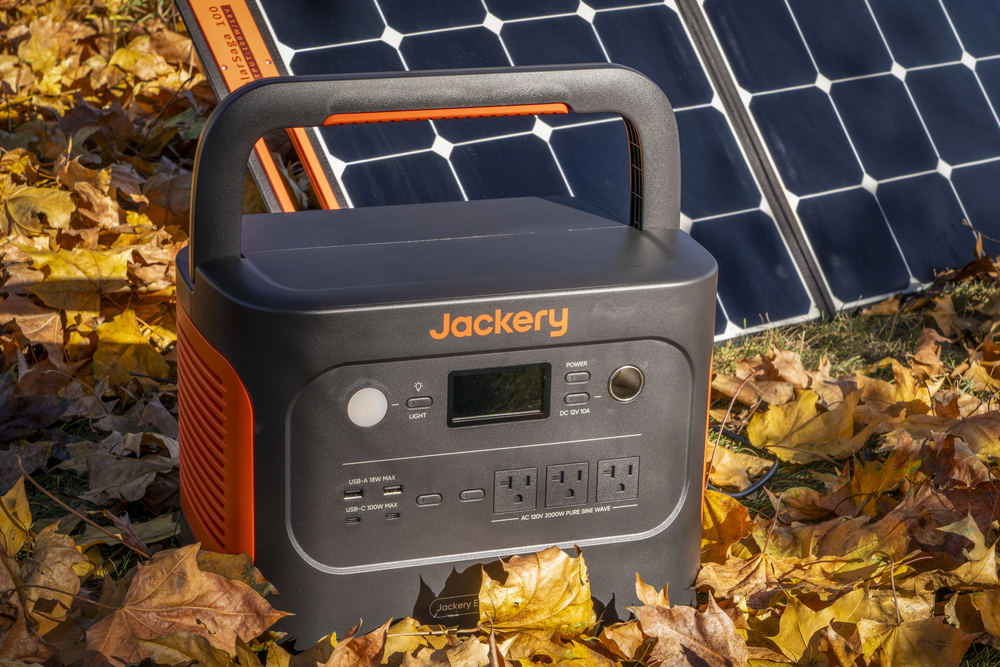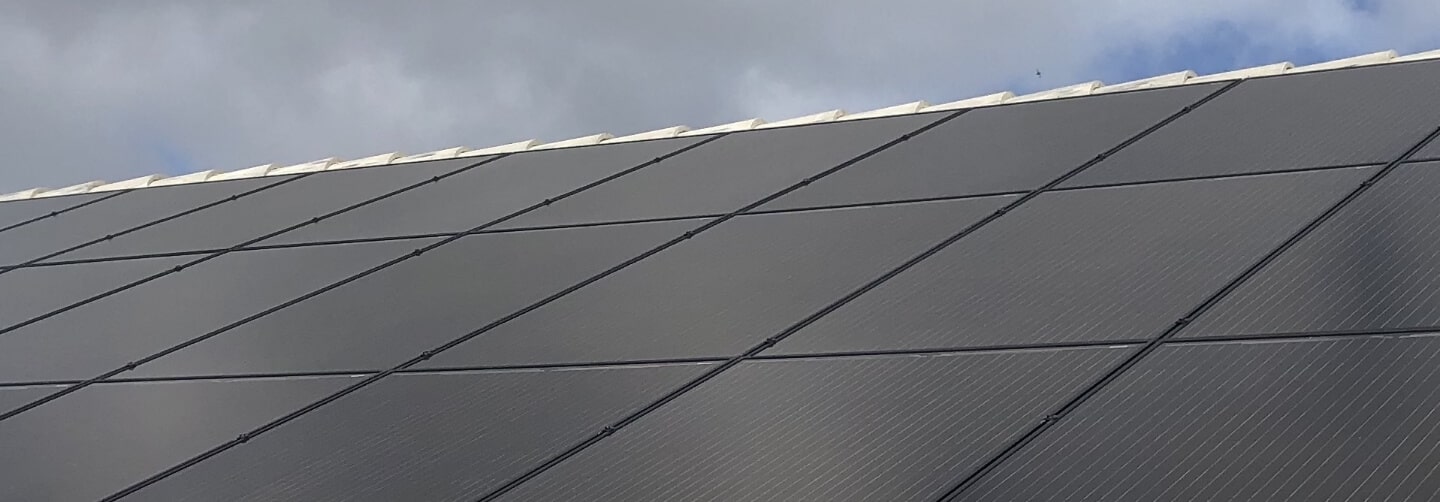Why Use Lithium Batteries For Solar Panels?

Do solar panels use lithium batteries? This is a common question among homeowners and businesses considering solar energy systems. Lithium batteries have become a preferred choice for solar energy storage because of their numerous advantages. These batteries efficiently store excess energy produced by solar panels, ensuring you have access to power when required. Let us discuss the benefits of lithium batteries to store solar energy, their high efficiency, and how they compare to other available options.
What Are Lithium Batteries?
Lithium batteries are rechargeable batteries commonly used in solar systems to store energy produced by solar panels. These batteries are favored for their high energy density, long lifespan, and efficiency. Unlike traditional lead-acid batteries, lithium-ion batteries are lightweight, more compact, and offer higher performance. They have the ability to store large amounts of energy and discharge it when needed, making them perfect for solar battery backups in homes and businesses.
- Longer Lifespan
One of the main reasons solar panels use lithium batteries is their extended lifespan. On average, lithium-ion batteries last between 10-15 years, depending on usage and maintenance. This is significantly longer than lead-acid batteries, which usually last around five to seven years.
Lithium-ion batteries are designed to withstand hundreds of charge and discharge cycles without significant degradation. This means that homeowners and businesses can rely on them for longer periods before having to replace the battery, making it an affordable choice in the long run.
- Higher Energy Density
Another key benefit of lithium-ion batteries is their high energy density. This means that they store more energy in a smaller, lighter package than other types of batteries, such as lead-acid batteries. As a result, lithium batteries take up less space, which is particularly beneficial for residential or commercial properties with limited storage options.
For solar energy systems, this high energy density translates into more efficient storage. Lithium batteries can store more of the energy produced by solar panels and release it as needed, allowing for longer periods of power supply during the evening or cloudy days.
- Improved Efficiency
Lithium batteries have a higher charge/discharge efficiency than traditional lead-acid batteries, which means they can release stored energy more effectively. While lead-acid batteries often have an efficiency rate of around 80%, lithium-ion batteries can achieve efficiency rates of up to 95%. This means more of the solar energy generated during the day is stored and available for use, making lithium-ion batteries a more reliable and efficient choice.
In addition, lithium batteries charge faster, which allows them to store energy more quickly when your solar panels are generating excess power. This rapid charging capability makes sure that you have a constant supply of energy, even during short, peak production periods.
- Smaller and Lighter
Lithium-ion batteries are much smaller and lighter compared to lead-acid batteries. This makes them easier to install and integrate into solar systems, especially in locations where space is limited. The smaller size does not compromise their storage capacity, making them an ideal option for homeowners and businesses that want a compact, efficient solar battery backup.
The lightweight design of lithium batteries also makes them easier to handle and move, which is particularly helpful during installation or maintenance. This is another reason why solar panels use lithium batteries as the preferred storage option for energy.
- Fewer Maintenance Requirements
Compared to other types of batteries, lithium-ion batteries require much less maintenance. Lead-acid batteries, for instance, require regular maintenance, including checking water levels and ensuring there is no corrosion. In contrast, lithium batteries are virtually maintenance-free.
This ease of maintenance is one of the primary reasons why lithium-ion batteries are preferred for solar systems. Once installed, they require minimal attention to continue functioning optimally. This is ideal for homeowners and businesses who prefer a hassle-free energy storage solution.
- Safer Performance
Lithium-ion batteries are safer than many other types of batteries. They are equipped with built-in Battery Management Systems (BMS) that help prevent overcharging, overheating, and short circuits. This makes them a safer option for solar energy storage, as they reduce the risk of fire or damage that could occur with traditional batteries.
In contrast, lead-acid batteries can be prone to acid leakage and require careful handling, especially during disposal. The safety features of lithium batteries make them a better option for solar services, especially for residential installations where safety is a top priority.
- Support for Solar Battery Backups
One of the primary reasons solar panels use lithium batteries is their ability to act as reliable solar battery backups. When the sun is not shining, lithium-ion batteries offer a backup energy source. This is especially useful during cloudy days, at night, or during power outages.
With lithium batteries, you can rely on stored energy rather than drawing power from the grid. This reduces your dependence on utility companies and allows you to use your own renewable energy, even when solar production is low.
- Increased Property Value
Homes equipped with solar energy systems that include lithium-ion batteries often see an increase in property value. Homebuyers are more likely to be attracted to homes with solar battery backup systems because they offer long-term energy savings, reduce utility costs, and increase energy security.
In areas where power outages are common, having a solar battery can significantly increase your home’s value. Potential buyers appreciate the security of having backup power during emergencies, which makes homes with solar batteries more desirable in the market.
- Environmental Benefits
Using lithium-ion batteries for solar energy storage is a step toward reducing your environmental impact. Since solar panels already use clean, renewable energy, pairing them with lithium batteries reduces reliance on fossil fuels and lowers your carbon footprint.
Lithium-ion batteries are also more environmentally friendly compared to lead-acid batteries. They don’t contain harmful chemicals and can be recycled more easily. By switching to a solar battery backup, homeowners and businesses contribute to a cleaner, greener environment.
- Enhanced Flexibility for Energy Use
With lithium-ion batteries, you have the flexibility to control your energy consumption more effectively. You can store solar energy for use during high-demand hours, such as in the evenings when electricity prices tend to rise. This flexibility helps you take advantage of lower-cost solar energy during the day and use it when grid electricity is most expensive.
By using solar battery backups, you not only optimize your solar energy system but also increase your control over your energy use, making it easier to manage your consumption and reduce costs.
- Future-Proofing Your Energy Needs
Lithium-ion batteries help future-proof your solar energy system. As technology advances, the cost of solar batteries continues to fall, and the efficiency of these systems improves. By choosing lithium-ion batteries, you’re ensuring that your solar system remains compatible with future technologies.
These batteries are designed to be scalable, meaning you can add more capacity in the future if needed. This makes it easy to adapt your energy system to changes in energy needs, ensuring you’re always on the cutting edge of solar technology.
- Improved Grid Stability
Using solar battery backups helps to improve grid stability by reducing the demand on the local electrical grid. During times of peak energy usage, when many homes and businesses are consuming electricity, the demand on the grid can cause strain. By relying on a solar battery backup system, you reduce your need to draw power from the grid during these peak periods, which alleviates stress on the grid and contributes to overall energy efficiency. This is especially beneficial in areas where the grid is vulnerable to overloading or outages.
- Better Control Over Energy Costs
With a solar battery backup, homeowners and businesses have better control over their energy costs. By storing excess energy during the day, you can use that energy later, when electricity prices may be higher. For businesses, this flexibility can be important for managing operational costs. A solar battery backup gives you the ability to charge during off-peak hours when electricity is cheaper and store energy for peak times, lowering your monthly energy expenditure.
- Adaptability to Various Solar Energy Systems
Lithium-ion solar batteries are adaptable to a variety of solar energy systems. If you have an existing solar panel system or are installing a new one, these batteries can be integrated into almost any setup. Solar battery backups offer flexibility, allowing homeowners and businesses to expand their energy capacity as needed. They can be configured to work with both grid-tied and off-grid systems, offering versatility and ensuring that your solar system meets your specific energy needs.
Why Choose Solar Energy Solutions of America?
At Solar Energy Solutions of America, we specialize in offering high-quality solar battery backup systems tailored to your specific energy needs. Our team works closely with you to design and install the best solar battery system for your home or business, ensuring that you can take full advantage of your solar energy.
We offer a range of solar services, including expert installation and maintenance, to help you achieve energy independence. Our commitment to quality makes sure that your system runs efficiently, offering reliable energy storage and backup power.
